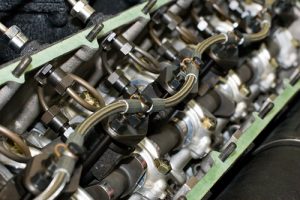
U.S. Rep. Buddy Carter (R-GA) recently helped secure finalized U.S. Environmental Protection Agency (EPA) amendments to the national marine diesel engine program that will provide much-needed regulatory relief to pilot boat captains in Georgia and across the country.
EPA Administrator Andrew Wheeler on Aug. 20 announced the finalized amendments, which address the lack of available certified Tier 4 marine diesel engines for use in certain high-speed commercial vessels, according to a statement from Rep. Carter’s office.
“This is great news for the First District and our ports,” said Rep. Carter. “This rule will ensure bar pilots in Savannah and Brunswick are able to get the boats they need to do their jobs. Without this change to the rules, the pilots could have been forced to scale back their critical work which is required for every ship to enter and exit both the Ports of Savannah and Brunswick.”
The rule provides particular relief to boat builders and manufacturers of lightweight and high-power marine diesel engines. Without the EPA relief, those in the market for a new boat would either choose an underpowered, unsuitable vessel or have to use existing vessels with older, dirtier engines, a background statement from the EPA read.
Under the finalized rule, the EPA will allow the continued installation of Tier 3 engines in new vessels until 2022 or 2024, depending on the size and type of vessel, according to the EPA.
The EPA action provides relief to pilot boat operators, allowing them to replace older vessels with newer and cleaner ones without sacrificing safety, the EPA statement said. There are currently at least 35 pilot boats operating in 21 major ports across EPA Region 4.
The finalized rule also establishes a waiver process to accommodate the situation where suitable Tier 4 engines continue to be unavailable in the future.
“The ports could have been devastated without this rule change,” Rep. Carter said. “Instead, they will now be able to keep cargo traffic moving.”



